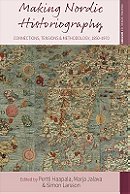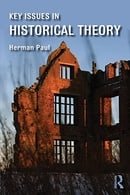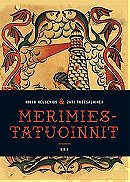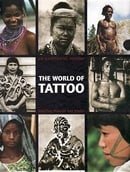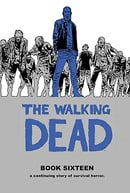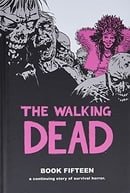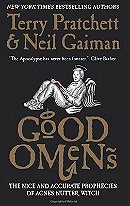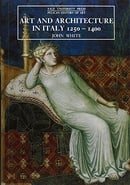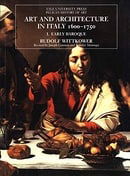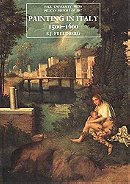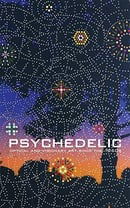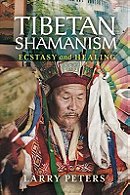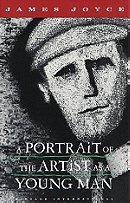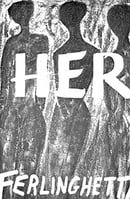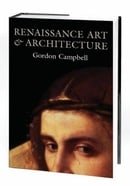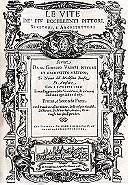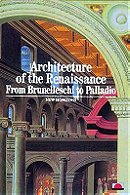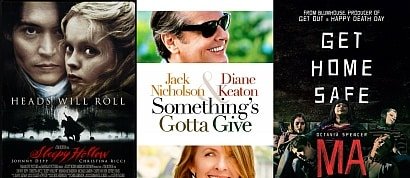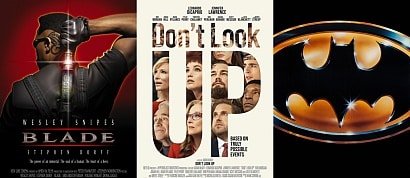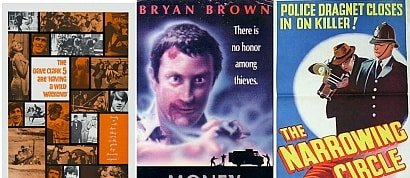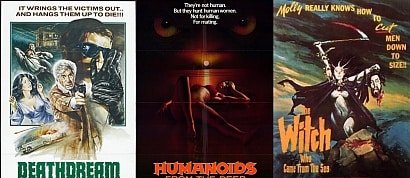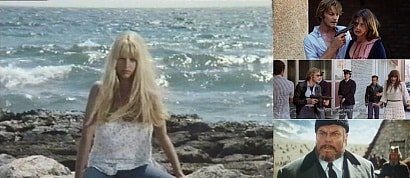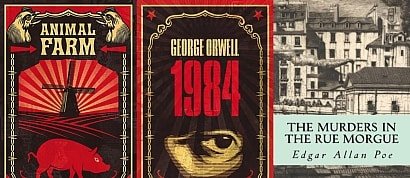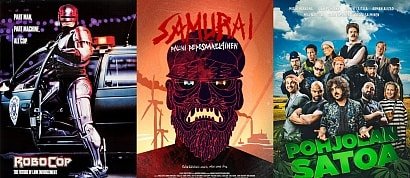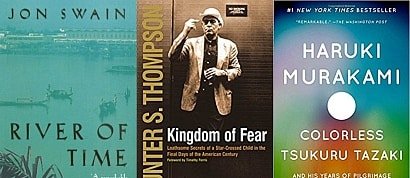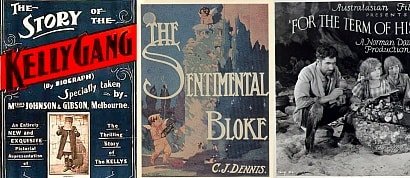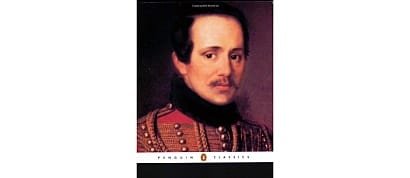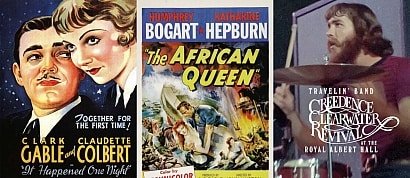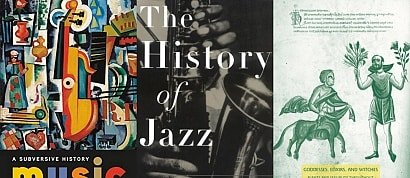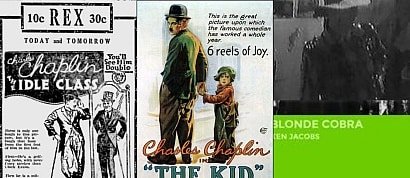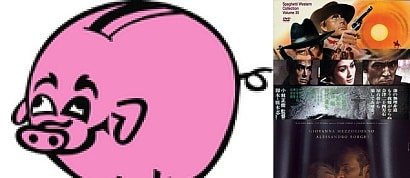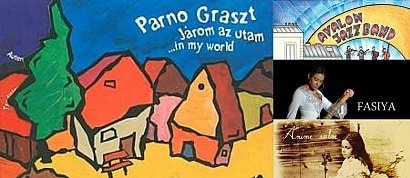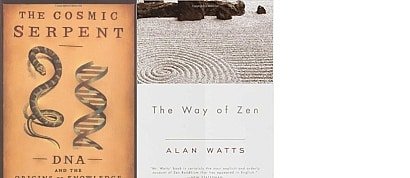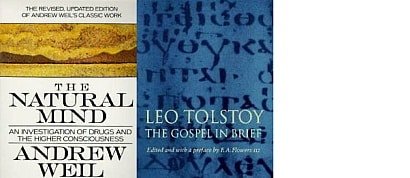Read in '20
Sort by:
Showing 22 items
Rating:
List Type:
Making Nordic Historiography: Connections, Tensions and Methodology, 1850-1970... - Pertti Haapala, Marja Jalava, Simon Larsson
For school. The rating is not so much about problems related to methodology nor to the factual contents of the book in general, because I see none, but merely about the contents in relation to the amount of personal enjoyment I experienced during the process of reading it, as there was not much of it involved. But even though the subject matter is not among my favorites in the field of history, nevertheless at times I was surprisingly intrigued by the book – especially so when reading through the article describing the inter-nordic HATE-OOZING FIGHT TO AN ACADEMIC DEATH concerning the professorial chairs of history in the universities of Denmark and Sweden (don't recall which ones, Copenhagen, Aarhus and Lund, perhaps?) in the early decades of the 20th century. Proper opera stuff.
Keaster's rating:


Hermann Lauscher - Hermann Hesse
An early Hesse, that reads interestingly enough, but is indeed quite clumsy and horribly pathetic in a very Romantic style. The occasional almost repulsive overflow of emotions reminded me at times of Goethe's Werther, which I could barely stand for precisely this reason when reading it a few years ago. The eerie atmosphere of rural Germany of the late 19th century is wonderfully created though, and probably my favorite aspect of the book.
Keaster's rating:


Robin Hood - Henry Gilbert
A jolly, surprisingly captivating collection of adventures. Robin Hood was never a big thing for me as a kid (I was more into Spider Man, dinosaurs, Smackdown, Donald Duck and various other creatures) and I don't even recall ever seeing the Disney movie, so there was no nostalgic attachment thing going on here, but from a cultural point of view it reads very interestingly. Morally it's extremely fucking highly black and white and generally very predictable, but it being a quintessentially classical kids' book I let it slip and didn't get angry, but rather just enjoyed it as it is.
Keaster's rating:


Key Issues in Historical Theory - Herman Paul
A required reading for a school course. An interesting little book that, in summary, is basically about a) our relationship with the past and b) the relationship between the past and the present. The main points the author wants to make clear are, firstly, that the past is always essentially tied to the present and doesn’t actually even exist without it; secondly, that we can never be certain if the past, or rather, events that took place in the past, actually existed as we think they did or we think we know they did, because essentially history and the past is all about interpreting the sources, and interpretations are always interpretations – however, there are methods that we can use to be as sure as possible that what we think about the past is true, but we can never be absolutely certain, because the past is not here anymore, and never will be; thirdly, that when interpreting the past, we have various more or less implicit filters that are in use and that are simply impossible ever to turn off, because we as human beings, our culture and our language are so inherently a construction of and tied to the past and our surroundings (which, of course, are created by the past), that an absolutely neutral observer of the past does not and can never exist. What we can do, however, is to become conscious about these filters that are in action, and thus do our best to avoid the bias they have the potential of creating, or even use them in our advantage; and fourthly, to acknowledge that the goal of the historian is precisely in the Great Objective Absolute Truth, but while trying to reach it, he or she has to understand, that it can NEVER be reached. But if one’s focus is directed at there, the results are more likely to be worth something and closer to the truth, whatever that truly cryptic word may signify.
Keaster's rating:


The Walking Dead Book 16 - Robert Kirkman
Probably the best book in the series. Even though I don't usually recall the individual books as masterpieces or so, the series as a whole is really quite good. You don't have to focus on reading it because it really reads itself once you open the covers, and it is not afraid of shaking the status quo and killing of basically anybody at any given moment, which keeps it constantly interesting. At times it certainly gets quite corny and even somewhat annoying because it seems to get a bit too exited about itself, but even at those moments it's still quite of a pleasure to read.
Keaster's rating:


Good Omens - Neil Gaiman,Terry Pratchett
It's not a bad book by any means, but honestly I was expecting far more from this, Good Omens being, after all, frequently mentioned in many interesting book lists and as a personal favorite of people who like good books. Also Sandman-era Neil Gaiman is such a fucking interesting mind, that it also naturally puts quite a lot of expectations for anything coming from him at that time (or later, for that matter).
But I do have to admit, that the biggest problem for me with Good Omens is that I found it often to be annoyingly quirky and full of itself. Not in an arrogant way by any means, but the writers just seem to get such enormous kind of kicks from writing it and playing with the sentences and making jokes after jokes after jokes, that they kinda lose the dynamic red line that keeps the thing solid, compact and going. This could also be fine if the jokes were really good, but most of them I just found to be in the class of mildly amusing, but nothing too spectacular really. What I enjoyed more was spotting out the various references to popular culture and history here, there and everywhere that Neil seems to like, and I do too.
And hey, what's wrong with the fourteenth century from the perspective of Crowley? It was the century when the Black Death hit Europe after all, I would imagine that a demon would get quite a lot of enjoyment from something like that.
But I do have to admit, that the biggest problem for me with Good Omens is that I found it often to be annoyingly quirky and full of itself. Not in an arrogant way by any means, but the writers just seem to get such enormous kind of kicks from writing it and playing with the sentences and making jokes after jokes after jokes, that they kinda lose the dynamic red line that keeps the thing solid, compact and going. This could also be fine if the jokes were really good, but most of them I just found to be in the class of mildly amusing, but nothing too spectacular really. What I enjoyed more was spotting out the various references to popular culture and history here, there and everywhere that Neil seems to like, and I do too.
And hey, what's wrong with the fourteenth century from the perspective of Crowley? It was the century when the Black Death hit Europe after all, I would imagine that a demon would get quite a lot of enjoyment from something like that.
Keaster's rating:


The chronologically newest book (originally published in the early 1970s) focusing on the art of Italy in the Pelican History of Art series pretty much follows the lead of the two previous books in this list, except White is perhaps the most "objective" of these academics – the quotation marks are very much needed here, because whereas objectivity certainly is the ever-unattainable aim of humanistic sciences, this is nowhere as obvious as it is with the field of research of art history, I have come to notice. White is also the least rambling and most comprehensible of these three professors, possibly because he is of a slightly younger and perhaps also of a more democratic generation, when compared to these highly individualistic dinosaurs who got their education largely before the second World War – not to say that this would make them any less knowledgeable or essential, but their style is just very much different, and personally I prefer the approach White here represents I think. The color pictures are also back alongside the black and white ones, which is definitely a plus.
Keaster's rating:


Art and Architecture in Italy 1600-1750, Vols. 1-3... - Rudolf Wittkower, Jennifer Montagu, Joseph Connors
A brick of a book packed full of information about the artists, styles and schools of painting, sculpture AND architecture during the roughly 150 vivid years of Baroque in all of Italy. This quite ambitious undertaking unavoidably results in a very superficial covering of several of the lesser known artists, but to compensate this, attached is a very thorough (though in 2020 somewhat dated) bibliography for acquiring more information on specific artists, styles, schools or areas. Although Wittkower also enjoys to ramble, his English is still far more reader-friendly than that of his colleague Freedberg's. I would have liked the book to include some color photographs, though, because especially with paintings you cannot help but feel that something VERY essential is missing when you try to squinch out what's going on and the details of a specific style from a small fuzzy black & white picture.
Wittkower is also highly high on Bernini. If I didn't know who he was nor the context of the book, I would've probably figured that he is writing about a very charismatic cult leader skilled in the art of hypnotism and manipulation. I mean mr B. was super influential and a brilliant artist for sure, but hey man, take a breath every once in a while.
Wittkower is also highly high on Bernini. If I didn't know who he was nor the context of the book, I would've probably figured that he is writing about a very charismatic cult leader skilled in the art of hypnotism and manipulation. I mean mr B. was super influential and a brilliant artist for sure, but hey man, take a breath every once in a while.
Keaster's rating:


Painting in Italy, 1500-1600 - Sydney Joseph Freedberg
If one wants to read a comprehensive book about, well, painting in Italy in the 16th century I'm pretty sure this is the one to go for. It starts in the late Quattrocento with the works of Leonardo, Michelangelo and Raffaello, and goes all the way up to late post-Maniera movements in Central Italy anticipating the kickstart of the Baroque by Caravaggio et al. Included are also loads of artists that you, or at least I, have never heard of before, and possibly will not after closing the covers of this brick. It's also got nearly 300 pictures, about half of which are in color.
There is one thing, though, that makes the book slightly less enjoyable than it has the potential to be, and that is professor Freedberg's inability or reluctance to write coherent English. It feels like he is deliberately composing grammatically ridiculously complex sentences one after another, page after page, chapter after chapter, so that it takes an enormous amount of effort to fish out the actual informative content from his endless ramblings.
The best of Venetian painting of the Cinquecento, i.e. Giorgione, (especially the late) Titian, Tintoretto and Veronese, is absolutely mesmerizingly amazing.
There is one thing, though, that makes the book slightly less enjoyable than it has the potential to be, and that is professor Freedberg's inability or reluctance to write coherent English. It feels like he is deliberately composing grammatically ridiculously complex sentences one after another, page after page, chapter after chapter, so that it takes an enormous amount of effort to fish out the actual informative content from his endless ramblings.
The best of Venetian painting of the Cinquecento, i.e. Giorgione, (especially the late) Titian, Tintoretto and Veronese, is absolutely mesmerizingly amazing.
Keaster's rating:


A surprisingly boring selection of artworks that can be classified as more or less psychedelic, depending on how one defines the term. There are a few gems included for sure, such as the three oils by Alex Gray, Isaac Abrams and Robert Williams, but the rest of the presented pieces are really quite unimpressive, and occasionally even somewhat annoying. And the pictures are too small. One of the three introductory essays, i.e. the one by Daniel Pinchbeck is, however, wonderful – perhaps because it doesn't have anything to do with this particular book/exhibition, but is rather an excellent general meditation about the psychedelic culture in the archaic and contemporary world.
Keaster's rating:


Tibetan Shamanism: Ecstasy and Healing - Larry Peters
An academically solid study of the shamanistic practices of a handful of Tibetan shamans active in a Tibetan refugee camp in Nepal. Also included is a highly interesting and informative chapter about the yeti mythology in the Himalayan area. Although Peters has put an impressive amount of focus on the different ways Buddhism has influenced indigenous Tibetan shamanism, or Bön, during the last millennia or so, I would have liked to read more historical and general information of what we know about the indigenous spiritual practices of Tibet – now the focus is only on these few particular contemporary shamans and their practice. This is of course also a most valid approach to an academically tricky-ish subject such as this, and Peters does his research very well, but if the title of the book is Tibetan shamanism, I would have liked it to include at least one complete chapter about the history and philosophy of Bön in general – or what we know about it, which is not very much, the historical sources being as sparse as they are, but still a general summary would have fitted there quite well, I think.
Keaster's rating:


A Portrait of the Artist as a Young Man - James Joyce
I read it originally as a teenager, and because I'm finally going to take up Ulysses – it's waiting there on my shelf! – I decided to read the works written by Joyce before Ulysses chronologically in order to tune myself in. Actually I started this process already a few years ago with Stephen Hero, but I'm finally getting close! And well, Exiles I actually read very un-chronologically a year or two back, and I probably won't be able to get my hands on Giacomo Joyce before Ulysses, but whatever, I still consider myself being approximately close enough to the original intention.
This is a finely constructed piece of writing, with impressive attention given to the stylistic changes during the course of the narrative. The differences to Stephen Hero are also interesting to notice, i.e. how the earlier book was still relatively conservative in it's style, but when reading the Portrait you kind of get the feeling that during these years in between the two books, Joyce, or Dedalus, has grown, or perhaps rather constructed, a pair of wings, and is trying them out to see how they work and will they fly.
When reading the Portrait, I also, once again, thought about the philosophical dimensions in the core of Catholicism, or rather, the lack of, if we define philosophy as love of wisdom. Because that particular religion is meant for controlling masses of people by scaring them shitless and to the verge of a heart-attack with imagery of Hell, of eternal damnation and pain and doom, and then when the people, who have no alternative source of information because all the persons who try to offer other viewpoints and worldviews have been silenced by, for example, burning them alive, are offered the only solution out of this all-encompassing misery, which is to do exactly what the Church says. And at the same time, it doesn't really matter a flying fuck if you kill people, rape babies or so on, as long as you believe the doctrine of the Church, and show remorse for what you have done... which technically means that you can still do all those things again, as long as you believe in the Church, and perhaps say a few Ave Marias every now and then or so. Generally and theoretically speaking, of course.
Additionally, Church also has no fucking clue of the two essential dimensions of the universe that make up the whole – the uni-verse – which, of course, are light and darkness, day and night, earth and sky, male and feminine etc. Most, or at least a very considerable part of the religions of the world outside the Abrahamic tradition understand this, but the three major religions from the Middle East are doing all they can to focus only on the other side, and completely suppress the other.
Although I would like to point out, that confession is potentially an excellent tradition which could be used for the benefit of people, but unfortunately the stuff that Church is interested in that context is mostly the kind of things that nobody should feel a divine repentance of, such as having sex for pleasure and/or outside marriage, or thinking of such things. And, unfortunately, if a person goes to confess something that is worth confessing, he or she is basically told to just mumble some of the Church's favorite pieces of lyric and that's about it, instead of actually discussing about the issue and thinking of the best practical way to solve it. But generally, a place where you can go and tell anything to a living human person and be one hundred percent certain that what you say never leaves that small wooden box, is an excellent thing, if it would just be utilized to its full potential.
This is a finely constructed piece of writing, with impressive attention given to the stylistic changes during the course of the narrative. The differences to Stephen Hero are also interesting to notice, i.e. how the earlier book was still relatively conservative in it's style, but when reading the Portrait you kind of get the feeling that during these years in between the two books, Joyce, or Dedalus, has grown, or perhaps rather constructed, a pair of wings, and is trying them out to see how they work and will they fly.
When reading the Portrait, I also, once again, thought about the philosophical dimensions in the core of Catholicism, or rather, the lack of, if we define philosophy as love of wisdom. Because that particular religion is meant for controlling masses of people by scaring them shitless and to the verge of a heart-attack with imagery of Hell, of eternal damnation and pain and doom, and then when the people, who have no alternative source of information because all the persons who try to offer other viewpoints and worldviews have been silenced by, for example, burning them alive, are offered the only solution out of this all-encompassing misery, which is to do exactly what the Church says. And at the same time, it doesn't really matter a flying fuck if you kill people, rape babies or so on, as long as you believe the doctrine of the Church, and show remorse for what you have done... which technically means that you can still do all those things again, as long as you believe in the Church, and perhaps say a few Ave Marias every now and then or so. Generally and theoretically speaking, of course.
Additionally, Church also has no fucking clue of the two essential dimensions of the universe that make up the whole – the uni-verse – which, of course, are light and darkness, day and night, earth and sky, male and feminine etc. Most, or at least a very considerable part of the religions of the world outside the Abrahamic tradition understand this, but the three major religions from the Middle East are doing all they can to focus only on the other side, and completely suppress the other.
Although I would like to point out, that confession is potentially an excellent tradition which could be used for the benefit of people, but unfortunately the stuff that Church is interested in that context is mostly the kind of things that nobody should feel a divine repentance of, such as having sex for pleasure and/or outside marriage, or thinking of such things. And, unfortunately, if a person goes to confess something that is worth confessing, he or she is basically told to just mumble some of the Church's favorite pieces of lyric and that's about it, instead of actually discussing about the issue and thinking of the best practical way to solve it. But generally, a place where you can go and tell anything to a living human person and be one hundred percent certain that what you say never leaves that small wooden box, is an excellent thing, if it would just be utilized to its full potential.
Keaster's rating:


For a long time Ferlinghetti was for me, as I guess for many others too when compared to the popularity of his literary fellows, simply the dude who published all the other beats, and whom I knew to be a writer too, but I had never come across any of his works and was hence uninformed of his personal merits... until last year I think it was, or the year before, when I found These Are My Rivers from my local library, and fell totally in love with it & him! I mean, I would dare to say that he is one of my most favouritestest of poets of everness of time, because the way how he manages to find the true or sometimes pleasantly false words and organize them into sentences or half sentences or just to a few cleverly compressed verbal paintings and with their help distill to paper these impressive and touching and clever observations about this so called reality we find ourselves in, and how he combines these beautiful, extremely beautiful passages with dreamy, surreal, subconscious and interconscious and metaconscious or whatever moments of realization that occasionally ascend to pure lyrical ecstasis, well, it is quite astonishing, to say the least! He's by the way still up & going, about to turn 101 years old next month. An interesting life he has had, I would imagine!
Now this book I recently ordered and actually managed to get my hands on it, unlike several other highly compelling books that the Italian post office seems to be rather unwilling to deliver to me, because it has been ages since I placed the orders. But this was one of the most fascinating ones, so I will not start a revolution... yet, at least.
And well, firstly, it is very, very, very deep & rapid stream, or rather a series of streams of a consciousness that is running randomly around to all the directions you can imagine, and also the ones you cannot, in a beautiful alpine valley, but without seeming to follow any kind of logic... except that of lyrical beauty, and perhaps of some kind of very peculiar kind of logic of its own, that is formed and emerges from the deep hidden underwater lake that all of these streams appear to have their common source in. This lake may have something to do with a woman and with the transcendental love that one can find and merge in with through the love of a woman and the act of making, of creating love with her, but which can be very tricky to achieve, because of the very typical habit of the human mind – especially of the male mind, I might add – of forgetting this dimension of love that can be found in the feeling of togetherness with the feminine, and of instead focusing on the pussy.
The book is, in fact, so near to being incomprehensible, that I had to read it aloud in order to understand it, but this, I think, actually helped a lot, and made it much easier to decipher it and figure out what's going on. This was also a very excellent way of reading Her, because the language of Ferlinghetti is extremely beautiful, like a continuous free flowing bebop jazz song of subconsciousness, but it only truly flowers full power when the words, that is to say the FLOW is pronounced out loud. Reading it aloud can also create extremely entertaining moments with your fellow citizens, especially if you decide to do it on public places with the company of yourself. Which I would definitely recommend you to do!
Now this book I recently ordered and actually managed to get my hands on it, unlike several other highly compelling books that the Italian post office seems to be rather unwilling to deliver to me, because it has been ages since I placed the orders. But this was one of the most fascinating ones, so I will not start a revolution... yet, at least.
And well, firstly, it is very, very, very deep & rapid stream, or rather a series of streams of a consciousness that is running randomly around to all the directions you can imagine, and also the ones you cannot, in a beautiful alpine valley, but without seeming to follow any kind of logic... except that of lyrical beauty, and perhaps of some kind of very peculiar kind of logic of its own, that is formed and emerges from the deep hidden underwater lake that all of these streams appear to have their common source in. This lake may have something to do with a woman and with the transcendental love that one can find and merge in with through the love of a woman and the act of making, of creating love with her, but which can be very tricky to achieve, because of the very typical habit of the human mind – especially of the male mind, I might add – of forgetting this dimension of love that can be found in the feeling of togetherness with the feminine, and of instead focusing on the pussy.
The book is, in fact, so near to being incomprehensible, that I had to read it aloud in order to understand it, but this, I think, actually helped a lot, and made it much easier to decipher it and figure out what's going on. This was also a very excellent way of reading Her, because the language of Ferlinghetti is extremely beautiful, like a continuous free flowing bebop jazz song of subconsciousness, but it only truly flowers full power when the words, that is to say the FLOW is pronounced out loud. Reading it aloud can also create extremely entertaining moments with your fellow citizens, especially if you decide to do it on public places with the company of yourself. Which I would definitely recommend you to do!
Keaster's rating:


When I placed the order on this I thought I was getting a nonfiction or an essay book on the subject or so, but I did not expect that I would be getting a dictionary! But I did. Content-wise it's packed full of compressed information about Renaissance artists, styles, certain buildings and gardens, techniques of painting etc. etc. and certainly does a good job on that (albeit a few typos with years or the cardinal numbers of different popes) – it's just that reading a dictionary like this from cover to cover is a bit exhausting.
Keaster's rating:


The Lives of the Artists (Oxford World's Classics)... - Giorgio Vasari
Got to have those good old kriittisyyskakkulat or critical goggles on when reading Vasari, because it's mostly based on hearsay that he personally collected in the sixteenth century. But apparently surprisingly large part of what he writes is accurate or close enough, and even if it wasn't, the book is highly interesting and entertaining as a period piece, and as a collection of amusing anecdotes about a bunch of very colorful persons. Also a good way to tune in to the Renaissance.
I read the Penguin edition from 1965 abridged and translated by George Bull.
I read the Penguin edition from 1965 abridged and translated by George Bull.
Keaster's rating:


Architecture of the Renaissance: From Brunelleschi to Palladio...
A very brief introduction to the basics of Renaissance architecture. It's organized in a bit strange and slightly unlogical way, but is still clear enough. The most basic information, like the orders, short terminology etc. could've still been presented in the very beginning because it would've taken max two pages.
Books I've read through in 2020. Apparently in English, but possibly sometimes in Finnish if I feel more like it.
Added to
People who voted for this also voted for
Watched in 2021
Miika's Movie Diary 2021
A New Decade! A New Year! Movies Watched In 2020
Rainaloki 2021
Book Diary 2020
my 2021 movie diary ✿
Movies watched in 2020
The Big Movie Watch List of 2021
Watched in 2024
Read by Texal in 2023
Watched in 2022
Read in 2014
Watched In 2023
Australian Films
Darth Brutus's Bigger & Badder Book Diary 2022
More lists from Keaster
 Login
Login

 1
1
 7
7
 0
0
